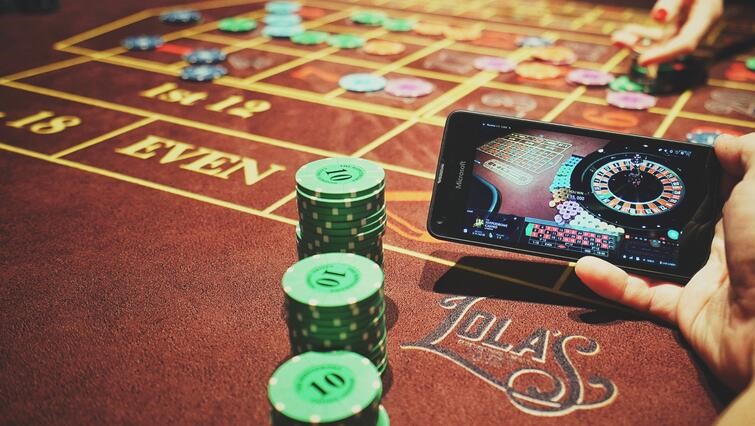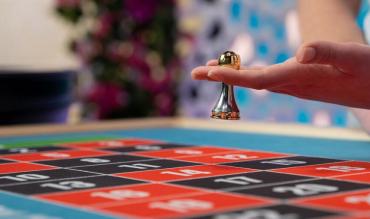The idea that past events can have an effect on future events is a common theme among some gamblers. If a roulette wheel has landed on black several times, then it has to hit red on the next spin or two, right?
That’s what is known as the “Gambler’s Fallacy.” This is the idea that one event in the past affects another in the future. Also known as the “Monte Carlo fallacy,” the concept is the mistaken belief that if something happens more frequently than normal over a certain period of time, then it will happen less frequently in the future.
The same goes that if something happens less frequently than normal during a certain period of time, then it will happen more frequently in the future. The article expands on this idea of the Gambler’s Fallacy and offers insight on its consideration when gambling in a casino.
Table of Contents
The Gambler’s Fallacy – Applies to More Than Just Gambling
While the Gambler's Fallacy can be applied to any activity or competition, it’s most often applied to gambling. In simple terms, the concept means something like “surely this outcome will stop at some point.”
Sporting Events
For example, this soccer team has beaten our club 12 straight times and surely we’ll get a win this time. Any sports fan knows this isn’t quite how things work.
This feeling that nature will balance the scales eventually is a mistaken belief. Gamblers often think in these terms when at the blackjack or craps tables.
In more mathematical terms, in situations with truly random events, one event doesn’t have an effect on any other events. An event is unaffected by past events as well and tends to follow this thinking:
- X occurs
- X departs from what’s expected on average or over the long term
- Therefore, X will come to an end soon
A person is assuming that some result must be “due” simply because what has previously happened departs from what would be expected on average or over the long run.
Coin Flips
Here’s another example: one flip of a coin doesn’t affect the next toss of the same coin. Each toss obviously follows this pattern:
- 50% chance of it landing on heads
- 50% chance of it landing on tails
Suppose someone flips a coin six times and gets heads each time. If he concludes that the next toss will be tails because that side of the coin “is due.” Of course, this line of thinking is the Gambler’s Fallacy.
As noted above, previous tosses have no bearing on the outcome of the seventh coin flip. Simply put, all flips remain a 50/50 proposition no matter what’s happened previously.
Reverse (Inverse) Gambler's Fallacy
This concept seems simple once the Gambler’s Fallacy is understood. Simply put, this idea of the Inverse Gambling Fallacy is also false based on the belief that if something happened that it will continue occurring. For example:
- Someone clips a coin five times.
- Another person bets that the sixth flip will also be heads.
- That person believes it will keep occurring because of past flips landing on heads.
Each flip continues to be independent of every other flip. This feeling that the next flip will also be heads is based on flawed logic considering these flips remain random events.

Roots in Monte Carlo at the Roulette Wheel
Monte Carlo is a global destination for gamblers. These elegant casinos offer a place to play for some of the world’s wealthiest gamblers.
The Monte Carlo Casino offered one of the best-known examples of the Gambler’s Fallacy at work on August 18, 1913 – resulting in some big losses for quite a few roulette players.
As the wheel continued spinning, the ball simply fell on black – over and over again. In fact, black came up 26 times in a row. This was an extremely uncommon occurrence.
Gamblers lost millions of francs betting against black that night. Most reasoned incorrectly that the streak was causing an “imbalance” in the randomness of the wheel.
“Red will surely come up on the next spin,” bettors had to be saying. That’s the Gambler’s Fallacy in a nutshell.
Real-Life Examples of the Gambler’s Fallacy
Obviously, the belief that events become less random and more predictable is a fallacy. One event is completely independent of other events.
Craps Table
Craps can serve as another great example. On May 28, 1989, Stanley Fujitake grabbed the dice at a craps table at the California Casino downtown Las Vegas.
A usual turn with the dice lasts only a few rolls before hitting a dreaded 7. But not that night at the Cal. Fujitake rolled 118 times, hitting fours, tens, sixes, eights, and every number imaginable except a 7.
The casino paid out three-quarters of a millions dollars after more than three hours with the same dice. Common thinking may be that a seven would come at any moment because it was “due.” But each roll was independent of each other roll and Fujitake’s rolls just kept missing the 7.
Lottery
Another example are those dreamers who enjoy playing the lotto. Many players around the world have their own strategies. But studies have shown winning numbers often fall off in popularity after being drawn for a winner.
Many may view that this number “has already won” and is less likely to come up again in a future drawing. This line of thinning, however, is the Gambler’s Fallacy at work.
Just because that number was drawn last week doesn’t mean it won’t come up again this week. A past drawing is completely independent of another random drawing a week later.
Sporting Event Coin Tosses
Building on the earlier examples of coin tosses, sports teams often base their coin toss decisions on the Gambler's Fallacy. American football games determine the initial kickoff by a flip of the coin.
One team may keep icking tails because it keeps winning for them, even inspiring the saying “tails never fails.” This is another example of the fallacy. Each toss is independent of each other and the toss remains a 50/50 proposition.
The Gambler’s Fallacy in Pop Culture
The concept of the Gambler’s Fallacy has been used in numerous works of literature, film, television, and other forms of pop culture through the years. Here’s a look at just a few.
Literature
In Edgar Allan Poe's “The Mystery of Marie Rogêt” explains the fallacy by noting:
“Nothing, for example, is more difficult than to convince the merely general reader that the fact of sixes having been thrown twice in succession by a player at dice, is sufficient cause for betting the largest odds that sixes will not be thrown in the third attempt. A suggestion to this effect is usually rejected by the intellect at once. It does not appear that the two throws which have been completed, and which lie now absolutely in the Past, can have influence upon the throw which exists only in the Future.
“The chance for throwing sixes seems to be precisely as it was at any ordinary time – that is to say, subject only to the influence of the various other throws which may be made by the dice. And this is a reflection which appears so exceedingly obvious that attempts to controvert it are received more frequently with a derisive smile than with anything like respectful attention.”
Television
Law and Order featured an entire episode called “The Gambler’s Fallacy” in 2014. The episode features Detective Amanda Rollins visiting underground gambling houses and coming up a loser.
Comics
Anyone who’s read the Peanuts comics or seen the cartoons knows Lucy always pulls the football away as Charlie Brown tries to kick the football. He inevitably takes a tumble when missing the ball.
In one comic, Charlie Brown decides he’s going to pass on kicking the ball however. Lucy notes that the odds are one day she won’t jerk the ball away as he tries to kick.
Lucy uses the Gambler’s Fallacy to continue Chuck to give it another try. What happened? He gives it a shot and of course, Lucy pulls the ball away. As he lay on the ground after yet another big fall, she tells him: “I’m sorry … this wasn’t the time!”
Summary
The Gambler’s Fallacy is the idea that when considering truly random events, future events are determined by a past event. From rolling dice to spinning roulette wheels, random gaming occurrences aren’t affected by previous occurrences.
The idea that something will change (or continue) based on previous results is the Gambler’s Fallacy. It’s important to remember.
- All random events are independent of other events.
- Basing decisions on previous dice rolls, roulette spins, or other random actions is flawed logic.
- Many gamblers still fall prey to this concept.
- Being aware of the Gambler’s Fallacy can help players be aware of real-world gaming events, odds, and actions.
- The notion that a change in action is “due” is consistent with real-world randomness.
